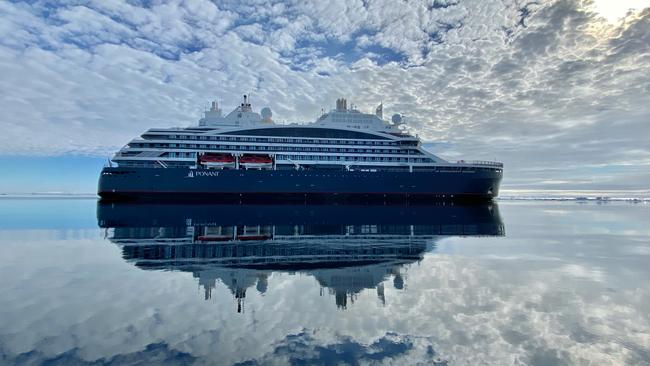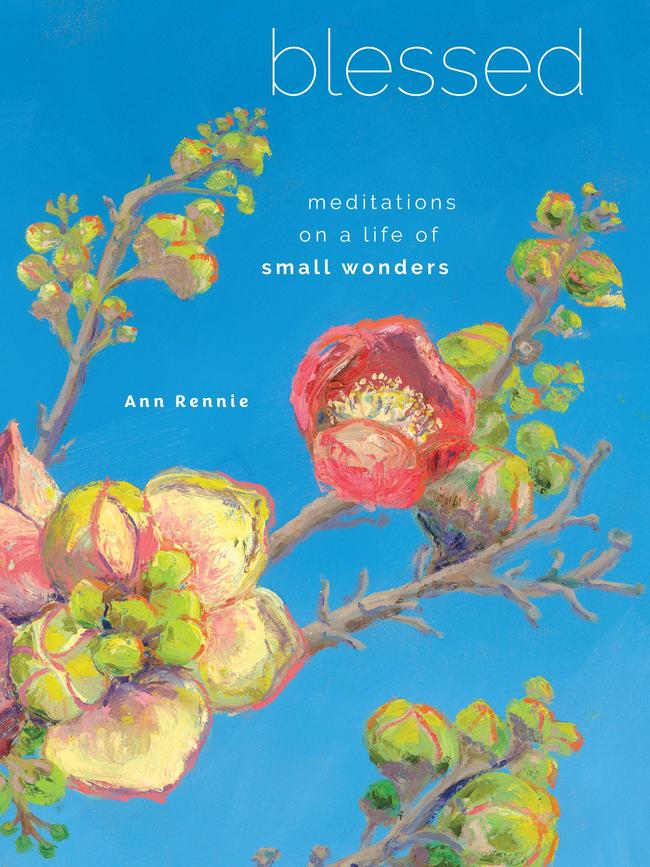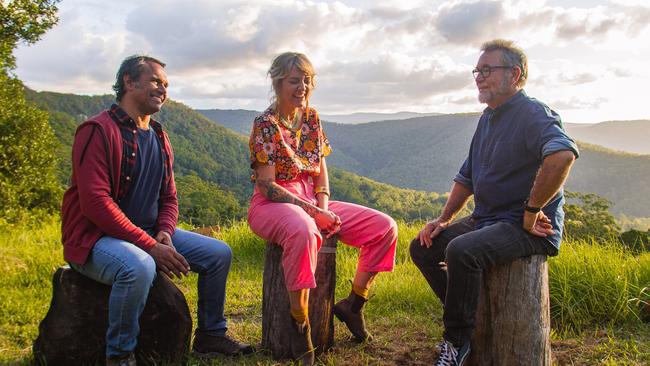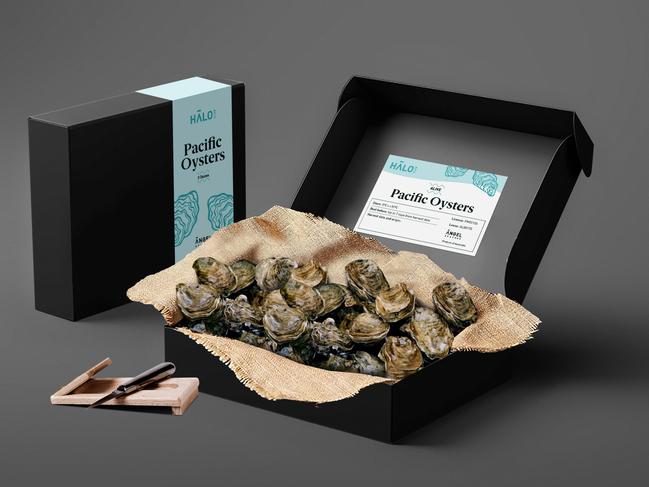Ponant’s Le Commandant Charcot prepares for maiden voyage
An expedition cruise vessel that breaks ground in marine propulsion technology is setting sail.

In less than two weeks, a bottle of Champagne will break in celebratory style on the bow of the world’s first hybrid-electric polar exploration ship powered by LNG.
Ponant’s Le Commandant Charcot, the 13th in the French line’s fleet and named after explorer Jean-Baptiste Charcot, will be christened in French port Le Havre on September 28.
A month later it sets sail on its maiden voyage, a 20-day adventure from Puerto Montt in Chile that kicks off its inaugural season in Antarctica. The itinerary includes a visit to its namesake, Charcot Island, an inhospitable outcrop that few people have set foot on.
The ship, which this week marked its first journey to the geographic north pole, will spend the northern hemisphere summer in the Arctic, sailing to destinations such as Norway’s Svalbard archipelago and Northeast Greenland National Park.
Up to 245 passengers can be accommodated in its 123 understated but elegant staterooms, all with balconies. There are four split-level suites but the cream of the crop is the 115sq m Shipowner’s Suite, with wide sliding glass doors opening on to a private terrace bigger than the indoor space.
Cuisine is overseen by Michelin-starred chef Alain Ducasse’s catering operation, with two dining options. Fine French and international fare is found at Nuna while Sila is a more casual eatery. Other features include two expedition boarding and disembarking rooms, indoor and outdoor swimming pools, lounges and a theatre, spa with sauna and snow room, gym and detox bar.
PENNY HUNTER
Book club
BLESSED: MEDITATIONS ON A LIFE OF SMALL WONDERS
Ann Rennie
“I’m just going to write because I cannot help it.” This admirably direct statement by Charlotte Bronte is but one of the epigraphs introducing the essays in
this charming new collection by Melbourne-based teacher and writer
Ann Rennie, who has occasionally contributed columns to The Weekend Australian.
It’s pleasing to see musings about travel included in the mix but the book takes a much wider approach, with clear insights into life, childhood, mothering, friendship, serendipity, and taking time to cherish tiny moments that have the potential to fulfil us all. There are reflections on deep Catholic faith and the power of education but Rennie’s writing shines most radiantly when she encourages us to pause and ponder and celebrate the joys of observation, to meditate on the unsung and often overlooked things.

There’s further resonance in the timing of the book’s release. Those of us in lockdown have ample time, I would warrant, to smell the flowers, as the old saying goes, but Rennie invites us to savour so much more in our lives, those “soft and singular soul-shifting wonders that can change the colour and mood of a day”. She’s a fan of letter-writing; rainbows (“nature’s heraldic flags); stoic and plain little sparrows, with their “cheerfulness” and “chirrupy conversation”; and holidays that don’t have to be “grand tours or beach bliss or discovery adventures” but simply a change of routine, a short sojourn that offers “a momentarily different headspace”.
There’s a lovely lilt of nostalgia as Rennie revisits favourite destinations, especially Dorset, where in her long-past “chambermaiding days” she once carefully turned down the counterpane of actor David Suchet (so meticulously wonderful as TV’s Hercule Poirot) and folded four-ply toilet paper “just so, into a neat triangle on its dispenser” at a family-run hotel in Studford. She describes a “hierarchy of hospitality and night managers in almost lordly attire checking that the decanters were full and the antimacassars perfectly aligned in the residents’ lounge”.
Blessed is an inspiring, gentle blend of memoir and rumination that’s as apposite for the here-and-now as for whatever could lie beyond.
SUSAN KUROSAWA
View from here

BACK TO NATURE
ABC, Tuesday, 8pm; iview
If it takes a while to twig to the tree-hugging dreaminess of Back to Nature, remember, most of us have all the time in the world right now. The eight-part series has a kinship with slow-TV but rather than hours-long train trips, a fair amount of journeying (both physical and philosophical) is packed into each half-hour episode. All the destinations are Australian and accessible; think, the Gondwana rainforest of the Gold Coast hinterland, Snowy Mountains, Mt Lofty Ranges outside Adelaide and north-east Tasmania.
The hosts are actor Aaron Pedersen (Mystery Road) and writer Holly Ringland (The Lost Flowers of Alice Hart) and their style is laid-back. Contrast it with the ever-jolly Joanna Lumley gallivanting around England, Scotland, Northern Ireland and Wales in just three episodes of JL’s Britain, also on iview. Back to Nature is all about connectedness, immersion, healing and invisible forces.
Along the road there are fascinating Indigenous stories and tuck-away info on biology, geology and the environment. Add encounters with the likes of John Williamson and Missy Higgins, and recipes for dishes based on local produce.
The music and camerawork are drifty (long shots of native grasses blowing in the breeze). It’s a heady mix but works well, even for a yowie sceptic.
At Hanging Rock in Victoria, there is mystery aplenty as explored in the Joan Lindsay novel (and Peter Weir film), Picnic at Hanging Rock. Our hosts riff on Lindsay’s notions of non-linear time, which may hold the key to the fate of the missing picnicking schoolgirls.
In the final episode, Ringland and Pedersen travel to Arrernte Country in Central Australia (he was born in Alice Springs), where thoughts turn to our place in the universe, a topic for the true time traveller.
GRAHAM ERBACHER
Spend it

With Coffin Bay’s world-class oyster farms currently out of reach for most Australians, what’s an ostreophile to do? Angel Seafood, which claims to be the largest organically certified oyster producer in the southern hemisphere, has come up with a solution.
Join its Halo Club and you’ll receive three dozen live Pacific oysters a month from South Australia’s Eyre Peninsula. The molluscs are delivered to your door wrapped in burlap and sitting on an ice pack in a sealed chill-bag, all carefully contained in a cardboard box.
Inside you’ll also find restaurant-quality accompaniments devised by chefs, such as salmon roe, finger limes, vinaigrette and ponzu dressing. The first delivery also includes a shucking set; a “how-to” video on the website takes novices through the shucking process. Membership is $100 a month.
PENNY HUNTER

To join the conversation, please log in. Don't have an account? Register
Join the conversation, you are commenting as Logout